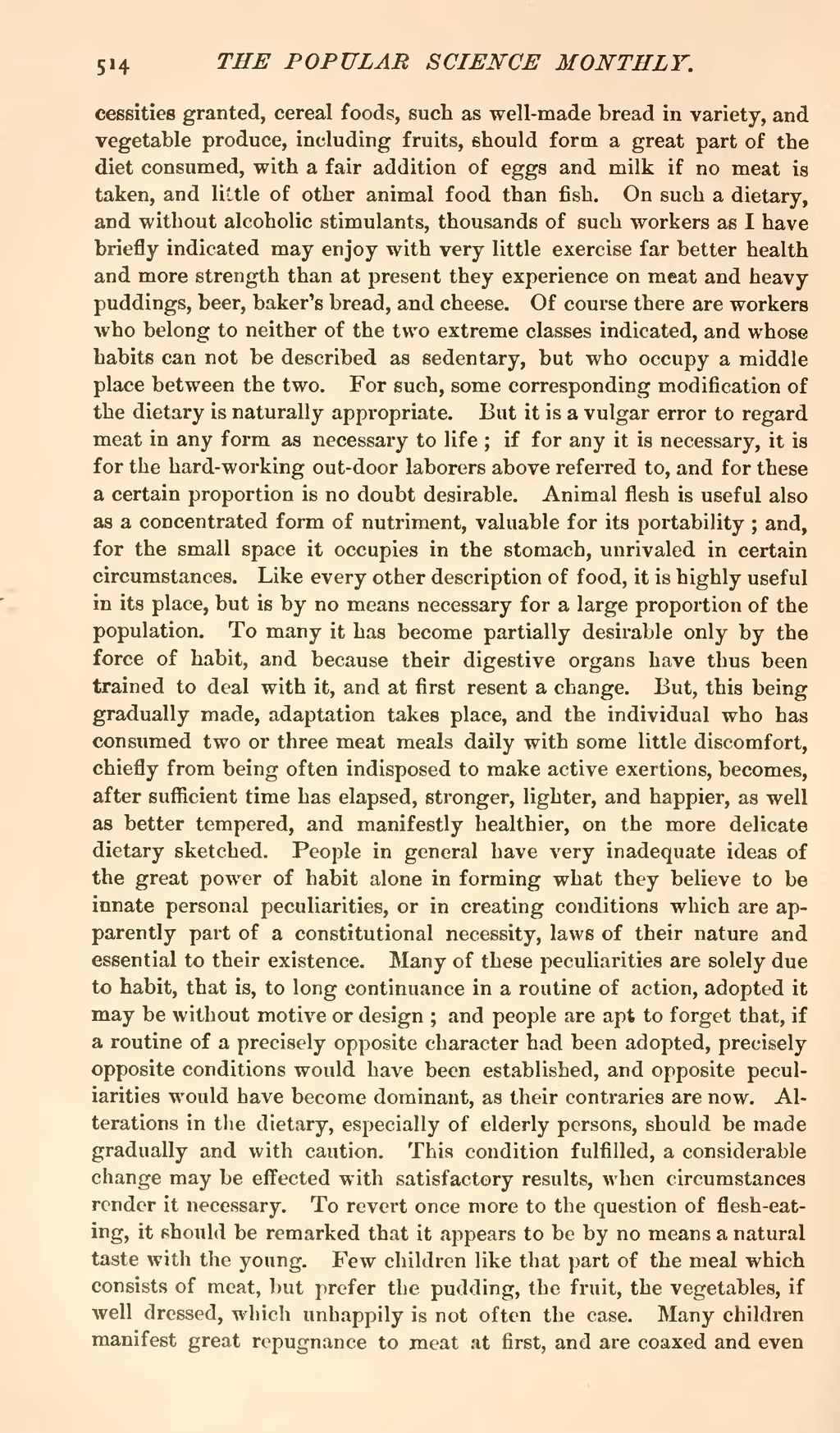cessities granted, cereal foods, such as well-made bread in variety, and vegetable produce, including fruits, should form a great part of the diet consumed, with a fair addition of eggs and milk if no meat is taken, and little of other animal food than fish. On such a dietary, and without alcoholic stimulants, thousands of such workers as I have briefly indicated may enjoy with very little exercise far better health and more strength than at present they experience on meat and heavy puddings, beer, baker's bread, and cheese. Of course there are workers who belong to neither of the two extreme classes indicated, and whose habits can not be described as sedentary, but who occupy a middle place between the two. For such, some corresponding modification of the dietary is naturally appropriate. But it is a vulgar error to regard meat in any form as necessary to life; if for any it is necessary, it is for the hard-working out-door laborers above referred to, and for these a certain proportion is no doubt desirable. Animal flesh is useful also as a concentrated form of nutriment, valuable for its portability; and, for the small space it occupies in the stomach, unrivaled in certain circumstances. Like every other description of food, it is highly useful in its place, but is by no means necessary for a large proportion of the population. To many it has become partially desirable only by the force of habit, and because their digestive organs have thus been trained to deal with it, and at first resent a change. But, this being gradually made, adaptation takes place, and the individual who has consumed two or three meat meals daily with some little discomfort, chiefly from being often indisposed to make active exertions, becomes, after sufficient time has elapsed, stronger, lighter, and happier, as well as better tempered, and manifestly healthier, on the more delicate dietary sketched. People in general have very inadequate ideas of the great power of habit alone in forming what they believe to be innate personal peculiarities, or in creating conditions which are apparently part of a constitutional necessity, laws of their nature and essential to their existence. Many of these peculiarities are solely due to habit, that is, to long continuance in a routine of action, adopted it may be without motive or design; and people are apt to forget that, if a routine of a precisely opposite character had been adopted, precisely opposite conditions would have been established, and opposite peculiarities would have become dominant, as their contraries are now. Alterations in the dietary, especially of elderly persons, should be made gradually and with caution. This condition fulfilled, a considerable change may be effected with satisfactory results, when circumstances render it necessary. To revert once more to the question of flesh-eating, it should be remarked that it appears to be by no means a natural taste with the young. Few children like that part of the meal which consists of meat, but prefer the pudding, the fruit, the vegetables, if well dressed, which unhappily is not often the case. Many children manifest great repugnance to meat at first, and are coaxed and even
